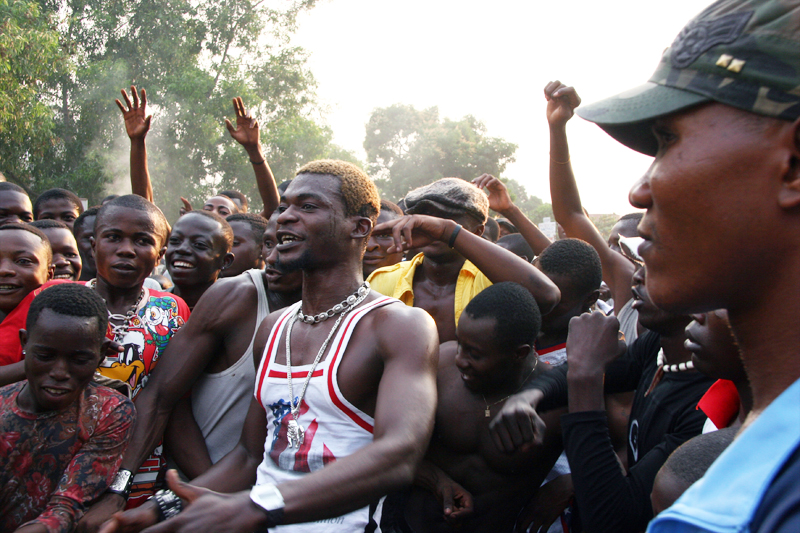Ouagadougou’s young people are eager for any music that gets them dancing, such as Magic System’s “Bouger Bouger”.
The Congolese ndombolo was overtaken by the Ivorian mapouka, then the coupé-decalé, which gave rise to a new style of music based on synthesisers. There followed a series of DJ-produced hits in rapid succession, all the rage one day, forgotten the next. Sadly, their simplistic, unsubtle rhythms have ended up driving out the live groups that used to perform in the maquis (open-air bar-restaurants).
Reggae has hit Burkina Faso, heralded by Alpha Blondy and Tiken Jah Fakoly – both considered “Northern Ivorians”, aligned with the Forces Nouvelles in their home country. But so far the country hasn’t managed to produce any noteworthy reggae artists of its own.
Zêdess, Black So Man, Jean-Claude Bamogo and Solo Dja Kabako have recorded some – but not exclusively – reggae music. Young artists, such as Ben Jah Verity, Razo Star, Yiriba or Founy Faya, who features on the compilation Le Gang Rebel du Faso, fall more squarely within the Afro-reggae tradition. Without a doubt, it’s rap that has really caught on in Burkina Faso.
The Ouaga Hip Hop Festival, first held in 2000, has become an unmissable rap fixture. Every year, young Burkina Faso artists welcome their opposite numbers from numerous countries – Togo, Guinea, Niger, Mali, Ivory Coast, Senegal, Cameroon, Uganda, France, Belgium – to take part in two weeks of workshops, exchanges and concerts. Organized by Ali Diallo, founder of the Umané Culture Association, the festival succeeds in fulfilling its aims: to take into account the expectations and needs of African professional musicians and to work towards raising the standards of the profession as a whole.
Header image: Flickr


